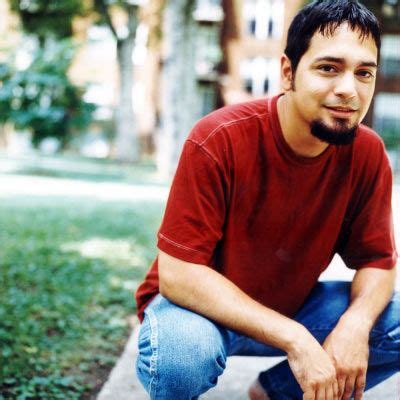A Quote by Jane Hirshfield
Poems allow us not only to bear the tally and toll of our transience, but to perceive, within their continually surprising abundance, a path through the grief of that insult into joy.
Related Quotes
Grief is accepting the reality of what is. That is grief's job and purpose-to allow us to come to terms with the way things really are, so that we can move on. Grief is a gift of God. Without it, we would all be condemned to a life of continually denying reality, arguing or protesting against reality, and never growing from the realities we experience.
It is the consciousness of the threefold joy of the Lord, His joy in ransoming us, His joy in dwelling within us as our Saviour and Power for fruitbearing and His joy in possessing us, as His Bride and His delight; it is the consciousness of this joy which is our real strength. Our joy in Him may be a fluctuating thing: His joy in us knows no change.
Our physical senses and our embodied brains allow us to perceive only a small fraction of reality. We cannot see microbes or untraviolet light, for example. We can hear only a small range of sounds. When we try to describe the otherworld of energies and spirits, we are limited not only by our bodily constraints but by the expectations, assumptions, and language patterns ingrained in us by the culture we were raised in.
We're being asked to continually be "authentic" and "honest" with the world through social media. There's a demand to post our wedding pictures, baby pictures (only minutes after the birth), our relationship status, and our grief and joys on Facebook and Instagram. Similarly, we construct persona through dating apps and networking sites. All of these social media networks exert pressure on us to share the personal details of our lives with unknown masses. So the pressure on the characters in "Openness" isn't merely romantic, but public/social as well.
What is most necessary for people and what is given us in great abundance, are experiences, especially experiences of the forces within us. This is our most essential food, our most essential wealth. If we consciously receive all this abundance, the universe will pour into us what is called life in Judaism, spirit in Christianity, light in Islam, power in Taoism.
Joy is what we are, not what we must get. Joy is the realization that all we want or need in life has been etched into our souls. Joy helps us see not what we are "going through," but what we are "growing to"-a greater sense of understanding, accomplishment, and enlightenment. Joy reveals to us the calm at the end of the storm, the peace that surpasses the momentary happiness of pleasure. If we keep our minds centered on joy, joy becomes a state of mind.
"Oh, when we are journeying through the murky night and the dark woods of affliction and sorrow, it is something to find here and there a spray broken, or a leafy stem bent down with the tread of His foot and the brush of His hand as He passed; and to remember that the path He trod He has hallowed, and thus to find lingering fragrance and hidden strength in the remembrance of Him as "in all points tempted like as we are," bearing grief for us, bearing grief with us, bearing grief like us."
When the mind is turbulent, uncontrolled and restless, it is like a pond of water that is filled with mud. Therefore when we look within ourselves, all we perceive is the mud of our material conceptions of life. But when the mind is still through discipline, and through yoga, it is like a pond that has no waves and no turbulence. Then we can perceive through that crystal clear water the eternal nature of our soul.
A human encounter with holiness is devastating. It refuses to allow us to be impressed with the things of the world we’ve been chasing. It refuses to allow us to remain comfortable in our sin. It refuses to allow us to remain on the throne of our lives. And it leads us to a relationship with the only One who can perfectly love us, who can forgive all our sins, and who can make us into His likeness. Our encounter with His holiness is our devastation. And our devastation is our salvation.
There is in India a story of a dying youth who, hearing the sobs of grief around him, cried: Insult me not with your cries of sympathy. When I soar to the land of eternal light and love; it is I who should feel for you. For me, disease, shattering of bones, sorrow, excruciating heartaches no more. I dream joy, I glide in joy, I breathe in joy evermore.






































